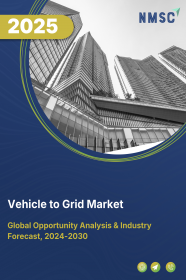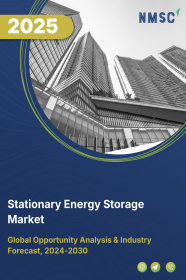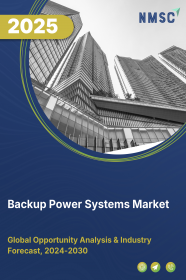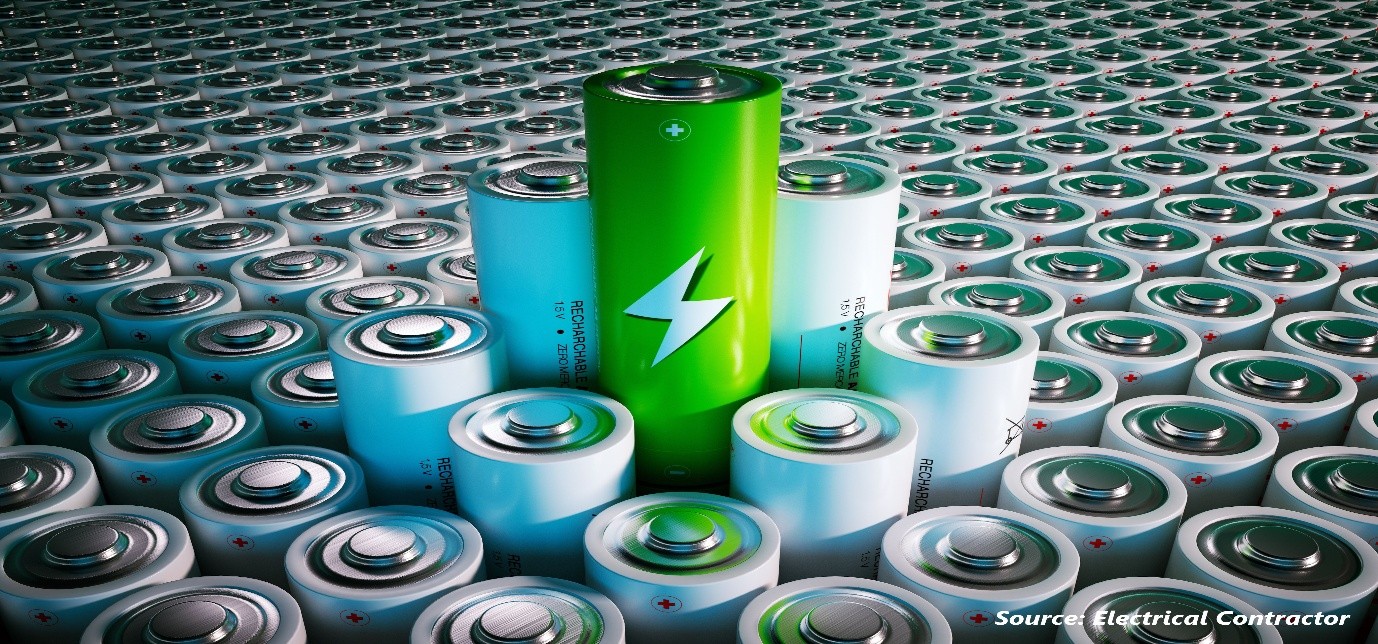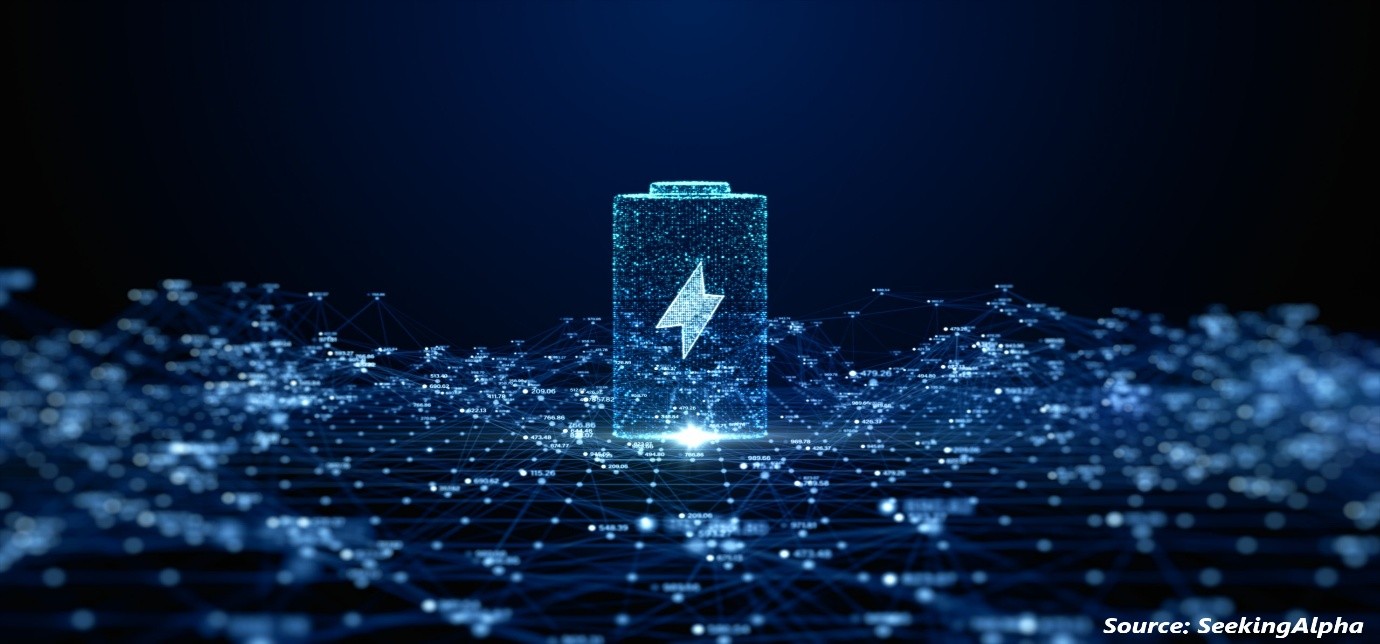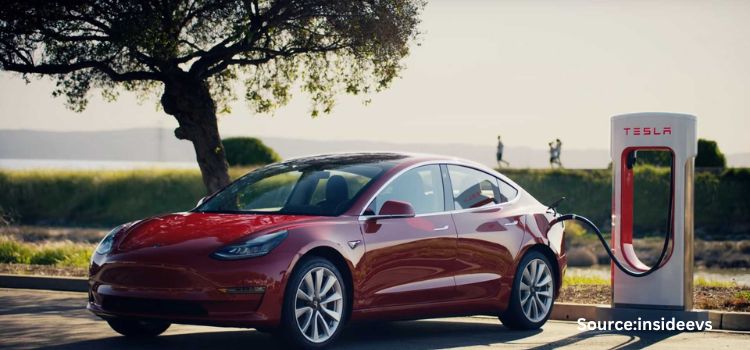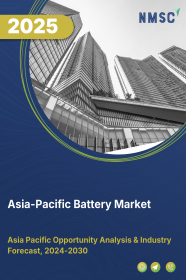
Asia-Pacific Battery Market by Type (Lead Acid, Lithium Ion, Nickel Metal Hydride, Nickel Cadmium, and Others), by Application (Residential, Industrial, and Commercial), and by Power Systems (Fuel Cell Batteries, Proton-Exchange Membrane Fuel Cells, Alkaline Fuel Cells, Phosphoric Acid Fuel Cells, Solid Oxide Fuel Cells, Molten Carbonate Fuel Cells, Air Cells, Flywheel Energy Storage, Nuclear Batteries) – Opportunity Analysis and Industry Forecast 2023-2030
Industry: Energy & Power | Publish Date: 20-Feb-2025 | No of Pages: 206 | No. of Tables: 153 | No. of Figures: 125 | Format: PDF | Report Code : EP721
US Tariff Impact on Asia-Pacific Battery Market
Trump Tariffs Are Reshaping Global Business
Market Overview
Asia-Pacific Battery Market was valued at USD 44.42 billion in 2022, and is predicted to reach USD 133.60 billion by 2030, with a CAGR of 14.7% from 2023 to 2030. A battery operates as a mechanism that stores energy and later releases it by transforming chemical energy into electrical energy. Typically, batteries produce electricity by harnessing one or more electrochemical cells. Batteries can be categorized into two distinct types such as primary batteries and secondary batteries.
Primary batteries, also known as non-rechargeable batteries, offer a straightforward and convenient energy supply for various portable electronic and electrical devices, including cameras, watches, toys, lights, radios, and more. In contrast, secondary batteries, often referred to as rechargeable batteries, possess the capability to be recharged electrically once they've been depleted. These energy storage solutions have evolved into indispensable sources of power in our daily routines. The progress of cutting-edge technologies, encompassing smartphones, tablets, laptops, solar energy systems, and electric vehicles (EVs), has ushered in the era of robust batteries capable of prolonged endurance and providing essential energy requirements.
Consumer Electronics Boom Fuels Asia Pacific Battery Market Growth
Asia Pacific comprises countries such as China, Japan, India, Australia, South Korea, Thailand, and Singapore. This can be attributed to factors such as high sales of consumer electronics, including smartphones, laptops, and cameras, in China, Japan, and India owing to large population in these countries. For instance, in 2021, the total number of smartphone shipments in China and India accounted for 329.3 million and 160.7 million units, respectively. Lithium-ion batteries are integral component of smartphones and highly adopted across the world for portable electronic devices due to their high energy density and low discharge rate. In addition, lithium-ion battery cells can deliver up to 3.6 V and do not require scheduled cycling to maintain their battery life. Thus, high sales of portable devices in this region are fueling the growth of battery market.
Pioneering the Electric Revolution: Asia Pacific Nations as Global EV Production Leaders
The several countries in Asia Pacific, such as China, Japan, and South Korea, are global leaders in the production of EVs. According to the China Association of Automobile Manufacturers (CAAM), the total number of EVs produced by China was accounted as 3.5 million. The growing environmental awareness and rising concerns regarding the harmful emissions from conventional vehicles have fueled the demand for EVs in this region, which, in turn, boosts the growth of battery market.
Safety Issues Related to Battery Usage in Asia Pacific
The improper management of batteries poses significant risks to both human well-being and the environment. A prevailing issue involves the incorrect disposal of used or depleted batteries, leading to their accumulation in landfills. Over time, these batteries degrade, releasing harmful substances that permeate the soil. This pollution detrimentally affects both surface water and groundwater, resulting in an ecological imbalance that jeopardizes aquatic flora and fauna. Elements like mercury, cadmium, lithium, and lead, present in these batteries, contribute to this disruption. Consequently, these concerns are anticipated to impede the progression of the battery market.
Introduction of Nano-Diamond Batteries (NDB) in Multiple Industries
The growing adoption of Nuclear Diamond Batteries (NDBs) across various sectors including automotive, aerospace, and electronics is positioned to create fresh avenues in Asia Pacific's battery market. NDBs represent a groundbreaking leap in energy generation and storage, fundamentally reshaping conventional battery concepts. These batteries showcase remarkable endurance by harnessing the energy derived from the radioactive decay of nuclear waste. The trajectory of Asia Pacific's battery market is being shaped by the compelling attributes of NDBs, which encompass their compact form, adaptability, cost-efficiency, and scalability across a wide array of applications, ranging from compact chipsets to expansive industrial setups. Functioning as advanced diamond-based alpha, beta, and neutron voltaic batteries, NDBs offer a consistent source of clean energy for a diverse spectrum of applications, surpassing the performance of traditional chemical batteries.
Competitive Landscape
The Asia Pacific battery industry includes several market players such as LG Chem Ltd., CATL, Samsung SDI Co. Ltd., BYD, SKI, ENVISION AESC GROUP LTD., Gotion High tech Co Ltd, Primearth EV Energy Co., Ltd., China Aviation Lithium Battery Co., Ltd., Panasonic Corporation.
Key Benefits
-
The Asia Pacific battery market report provides a quantitative analysis of the current market and estimations through 2023-2030 that assists in identifying the prevailing market opportunities to capitalize on.
-
The study comprises a deep dive analysis of the market trend including the current and future trends for depicting the prevalent investment pockets in the market.
-
The information related to key drivers, restraints, and opportunities and their impact on the market is provided in the report.
-
The competitive analysis of the market players along with their market share in the Asia Pacific battery market.
-
The SWOT analysis and Porter’s Five Forces model are elaborated in the study.
-
Value chain analysis in the market study provides a clear picture of the stakeholders’ roles.
Asia Pacific Battery Market Key Segments
By Type
-
Lead Acid
-
Stationary
-
Motive
-
-
Lithium Ion
-
Lithium Nickel Manganese Cobalt (LI-NMC)
-
Lithium Iron Phosphate (LFP)
-
Lithium Cobalt Oxide (LCO)
-
Lithium Titanate Oxide (LTO)
-
Lithium Manganese Oxide (LMO)
-
Lithium Nickel Cobalt Aluminum Oxide (NCA)
-
-
Nickel Metal Hydride
-
Nickel Cadmium
-
Others
By Application
-
Residential
-
Industrial
-
Manufacturing & Construction
-
Automotive
-
Medical
-
Telecom & IT
-
Consumer Electronics
-
Power & Utility
-
Aerospace
-
Marine
-
Others
-
-
Commercial
By Power Systems
-
Fuel Cell batteries
-
Proton-Exchange Membrane Fuel Cells
-
Alkaline Fuel Cells
-
Phosphoric Acid Fuel Cells
-
Solid Oxide Fuel Cells
-
Molten Carbonate Fuel Cells
-
Air Cells
-
Flywheel Energy Storage
-
Nuclear Batteries
By Geography
-
China
-
Japan
-
India
-
Australia
-
South Korea
-
Thailand
-
Singapore
-
Rest of Asia-Pacific
REPORT SCOPE AND SEGMENTATION:
|
Parameters |
Details |
|
Market Size in 2022 |
USD 44.42 billion |
|
Revenue Forecast in 2030 |
USD 133.60 billion |
|
Growth Rate |
CAGR of 14.7% from 2023 to 2030 |
|
Analysis Period |
2022–2030 |
|
Base Year Considered |
2022 |
|
Forecast Period |
2023–2030 |
|
Market Size Estimation |
Billion (USD) |
|
Growth Factors |
The growing government incentives The adoption of hybrid vehicles |
|
Countries Covered |
7 |
|
Companies Profiled |
10 |
|
Market Share |
Available for 10 companies |
|
Customization Scope |
Free customization (equivalent up to 80 working hours of analysts) after purchase. Addition or alteration to country, regional, and segment scope. |
|
Pricing and Purchase Options |
Avail customized purchase options to meet your exact research needs. |
Key Players
-
LG Chem Ltd.
-
CATL
-
Samsung SDI Co. Ltd.
-
BYD
-
SKI
-
ENVISION AESC GROUP LTD.
-
Gotion High tech Co Ltd
-
Primearth EV Energy Co., Ltd.
-
China Aviation Lithium Battery Co., Ltd.
-
Panasonic Corporation

















 Speak to Our Analyst
Speak to Our Analyst



